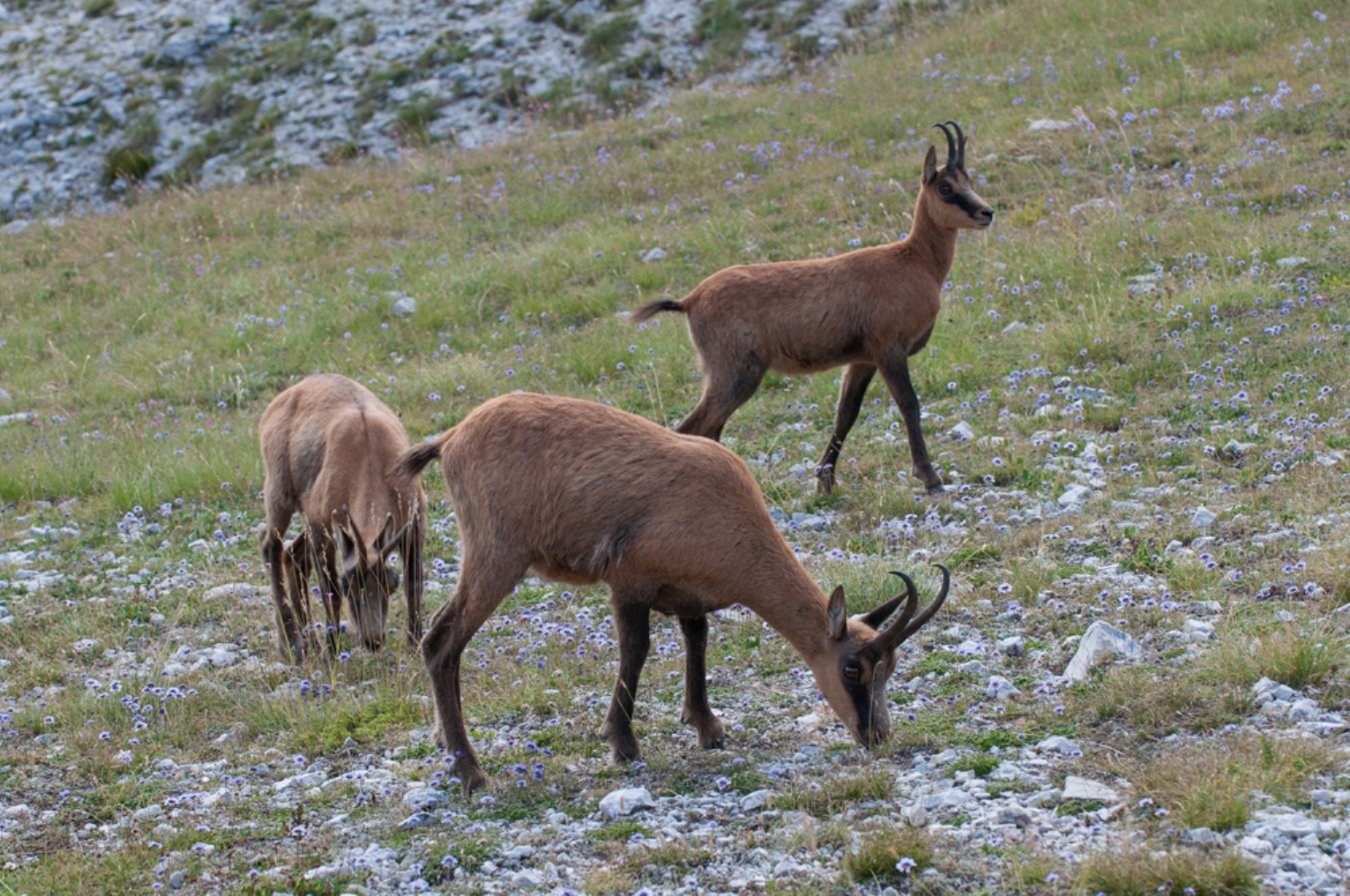Major climatic changes have occurred on a number of occasions, with over 50 such changes taking place in the Pleistocene epoch alone. Each time climate change events have required ecological and behavioural adaptations to surviving plant and animal species, obliging them to seek refuge in suitable areas or cope with habitat modifications and alterations of local plant/animal communities. This can potentially lead to inter-species competition. Mountains are strongly seasonal habitats, which require special adaptations for wildlife species living on them.
Population dynamics of mountain ungulates are strongly influenced by the availability of rich food resources to sustain lactation and weaning during summer seasons. In turn, well fed juveniles will survive winter rigours more easily. In the case of an increase of temperature – such as in the current ongoing climatic change – plant phenology and nutritional quality will be affected. Predictions have been made on what could happen to populations of mountain ungulates based on how climate change could alter the distribution pattern and quality of high elevation vegetation. In this talk we will explore a case study using the “clover community-Apennine chamois Rupicapra pyrenaica ornata” to explore these relationships. All scenarios suggest a decline of the Apennine chamois in the next 50 years in its historical core range- from about 85% to 99% near-extinction. It is argued that the negative consequences of climate changes presently occurring at lower elevations will shift to higher ones in the future. These effects will vary with the species-specific ecological and behavioural flexibility of mountain herbivores, as well as with availability of climate refugia.
If climatic conditions do continue to change, these are likely to elicit a variation of resource availability for herbivores, and in turn for carnivores. A potential for exacerbation of interspecific competition could follow. Species distribution and abundance will be affected calling for farsighted measures of adaptive management and conservation.
Find out more about our speaker here.

